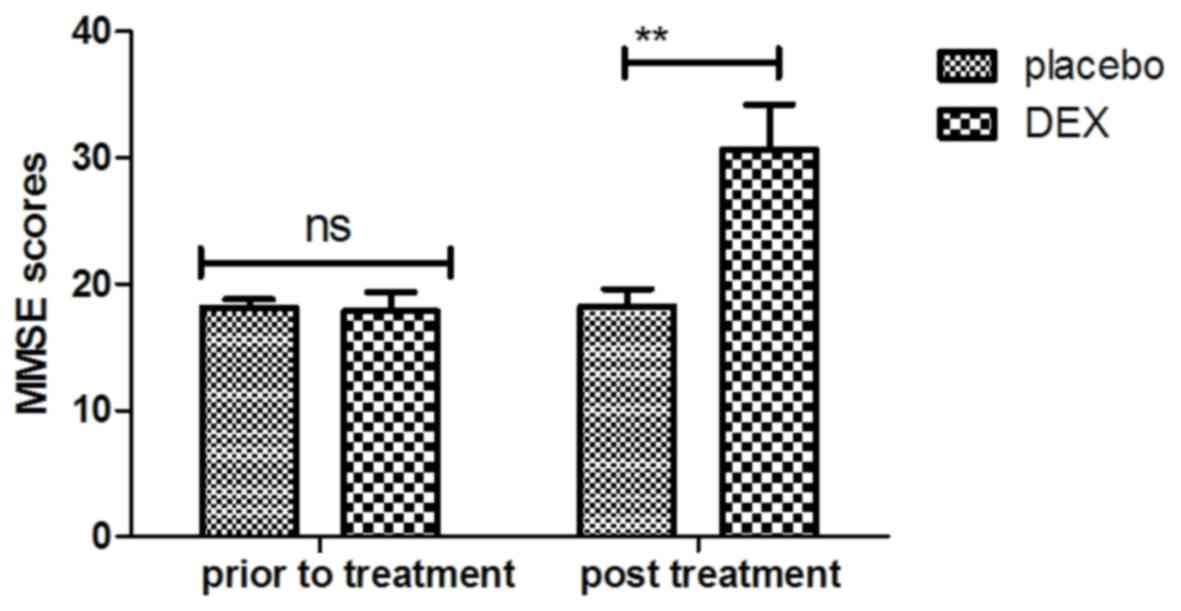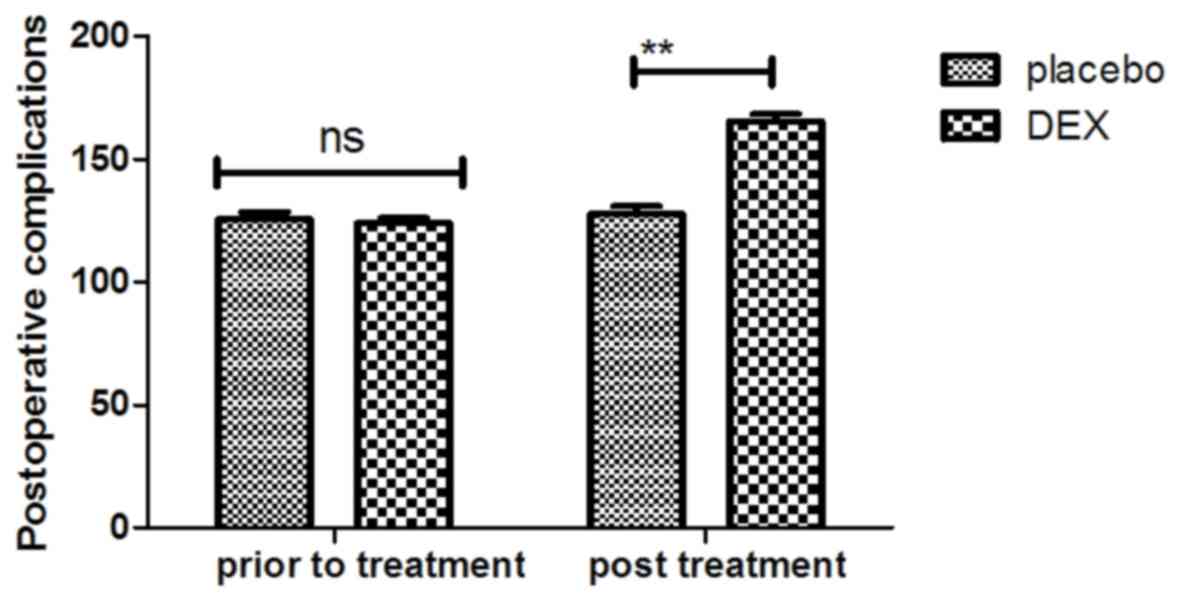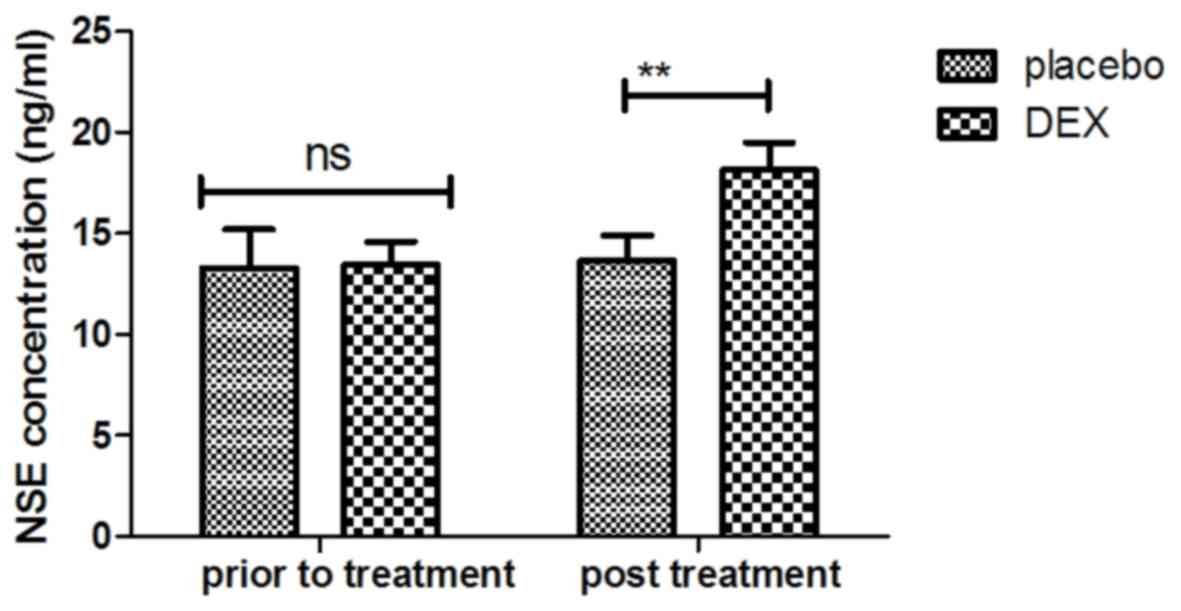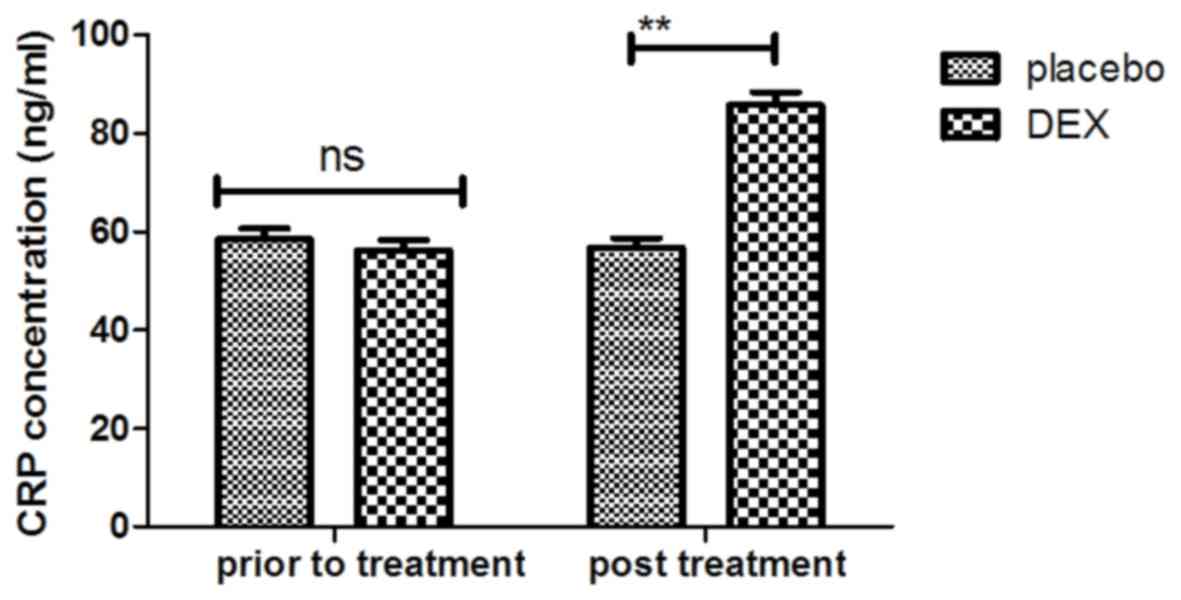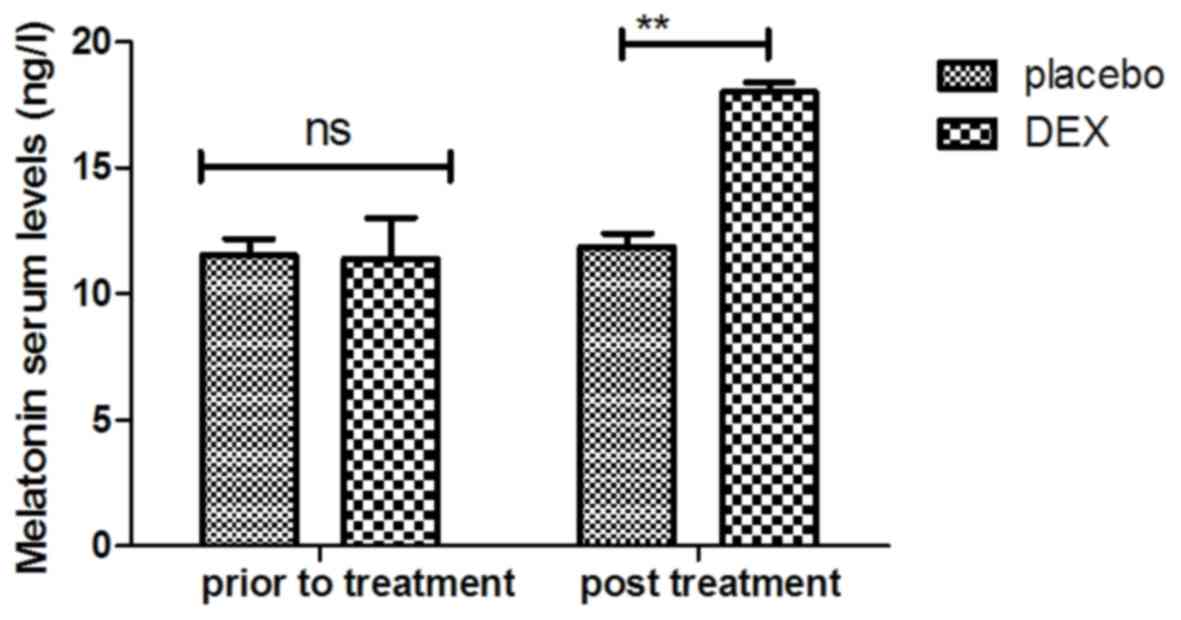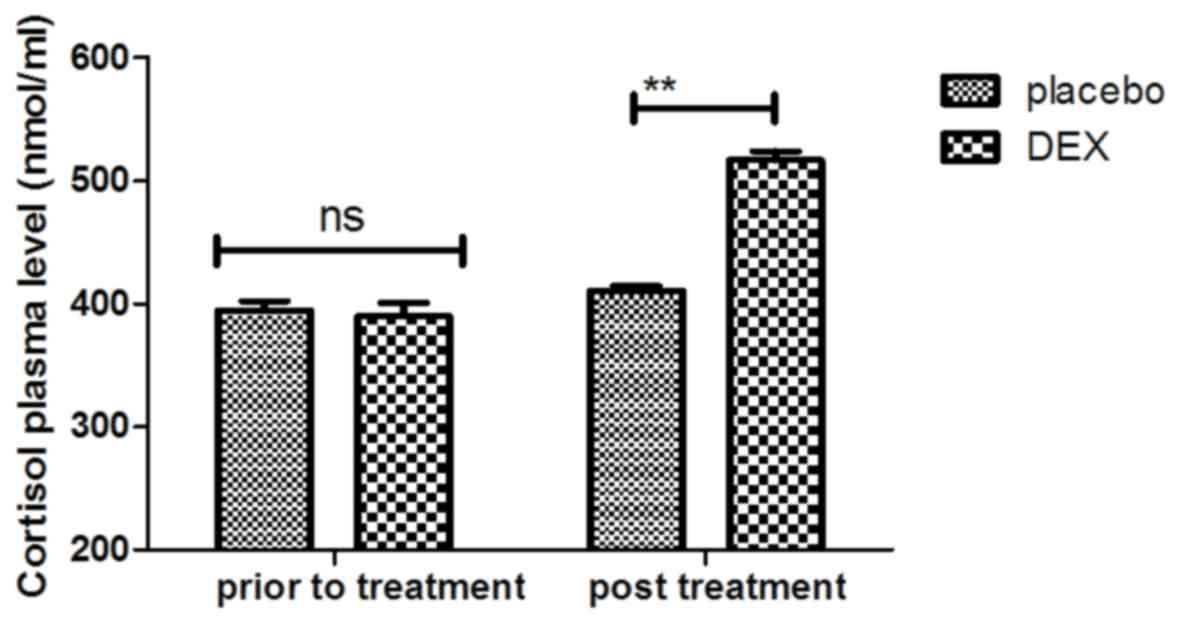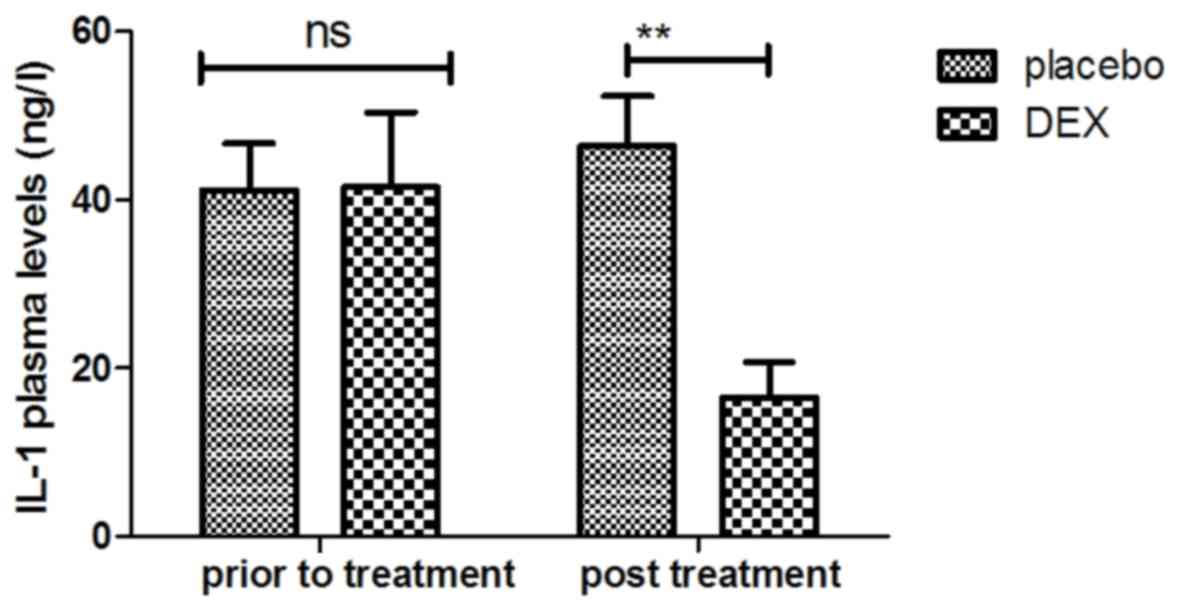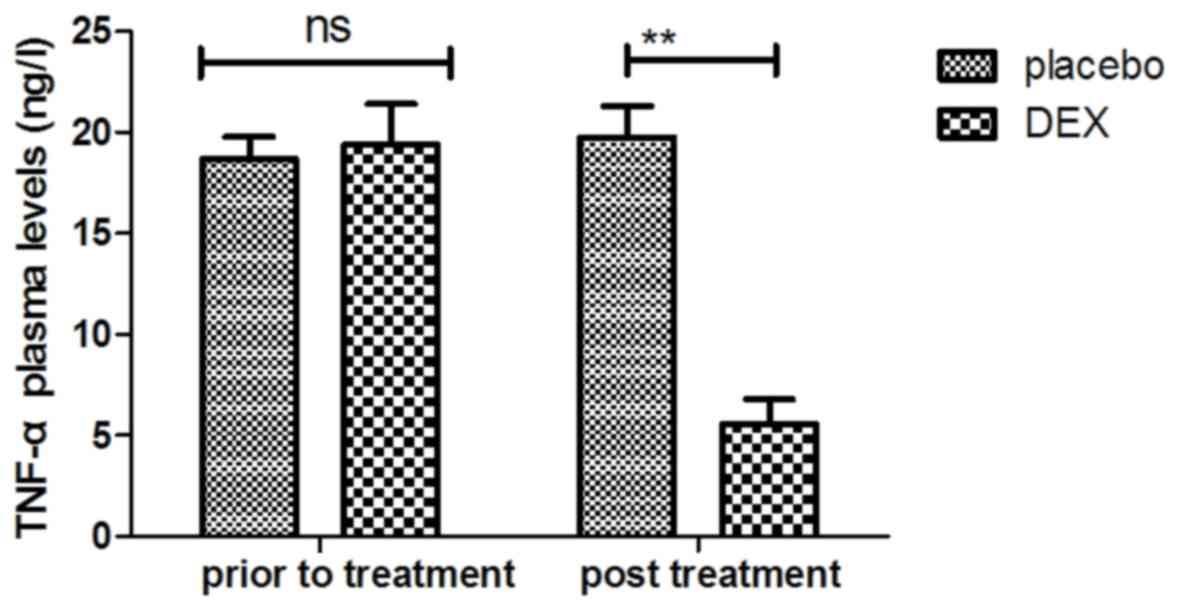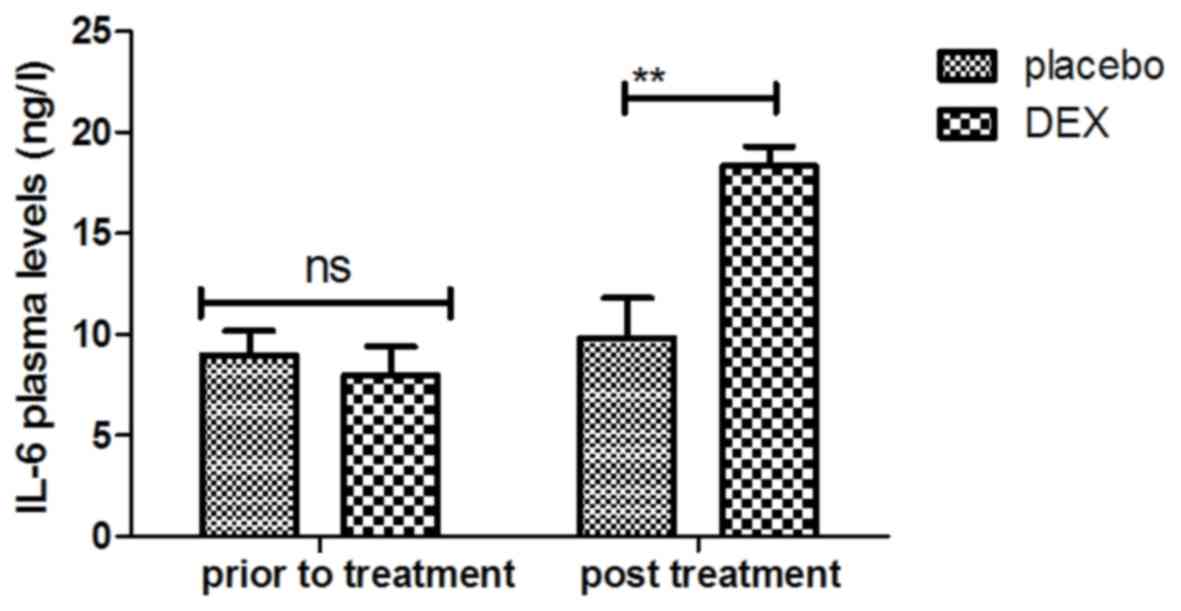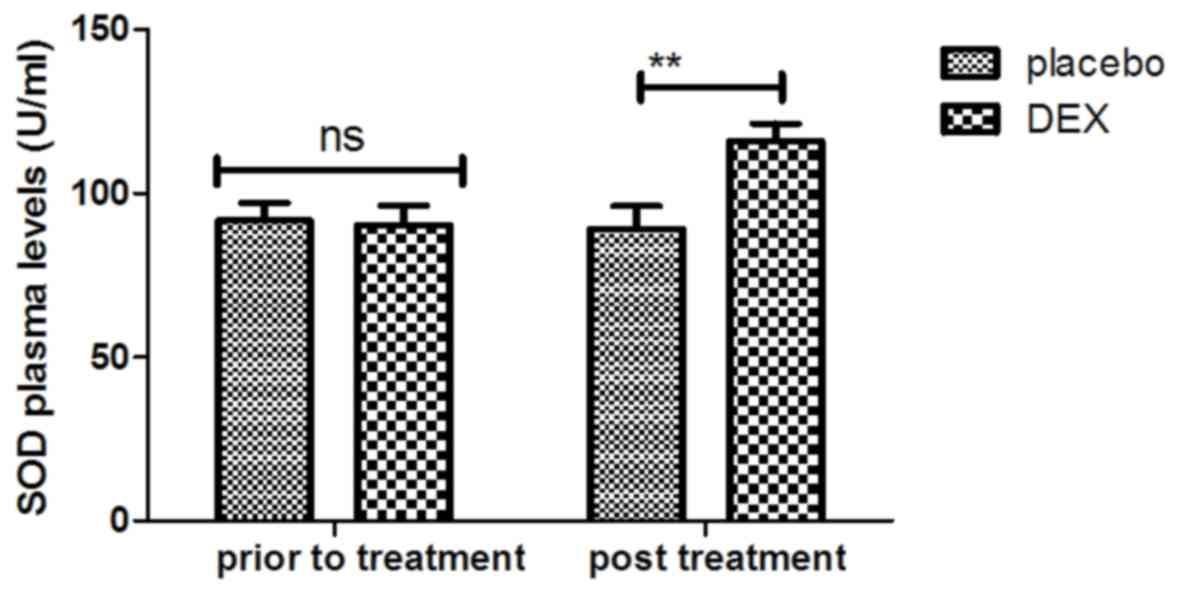|
1
|
Elgueta MF, Echevarría GC, De la Fuente N,
Cabrera F, Valderrama A, Cabezón R, Muñoz HR and Cortinez LI:
Effect of intravenous fluid therapy on postoperative vomiting in
children undergoing tonsillectomy. Br J Anaesth. 110:607–614. 2013.
View Article : Google Scholar : PubMed/NCBI
|
|
2
|
Buckley A and Savage E: Preoperative
information needs of children undergoing tonsillectomy. J Clin
Nurs. 19:2879–2887. 2010. View Article : Google Scholar : PubMed/NCBI
|
|
3
|
Leong AC: A randomised controlled trial to
compare postoperative pain in children undergoing tonsillectomy
using cold steel dissection with bipolar haemostasis versus
coblation technique. Clin Otolaryngol. 34:579–580. 2009. View Article : Google Scholar : PubMed/NCBI
|
|
4
|
Parker D, Howe L, Unsworth V and Hilliam
R: A randomised controlled trial to compare postoperative pain in
children undergoing tonsillectomy using cold steel dissection with
bipolar haemostasis versus coblation technique. Clin Otolaryngol.
34:225–231. 2009. View Article : Google Scholar : PubMed/NCBI
|
|
5
|
Eisert S, Hovermann M, Bier H and Göbel U:
Preoperative screening for coagulation disorders in children
undergoing adenoidectomy (AT) and tonsillectomy (TE): Does it
prevent bleeding complications? Klin Padiatr. 218:334–339. 2006.
View Article : Google Scholar : PubMed/NCBI
|
|
6
|
Reichel O, Mayr D, Winterhoff J, de la
Chaux R, Hagedorn H and Berghaus A: Tonsillotomy or
tonsillectomy?-a prospective study comparing histological and
immunological findings in recurrent tonsillitis and tonsillar
hyperplasia. Eur Arch Otorhinolaryngol. 264:277–284. 2007.
View Article : Google Scholar : PubMed/NCBI
|
|
7
|
Prows CA, Zhang X, Huth MM, Zhang K,
Saldaña SN, Daraiseh NM, Esslinger HR, Freeman E, Greinwald JH,
Martin LJ and Sadhasivam S: Codeine-related adverse drug reactions
in children following tonsillectomy: A prospective study.
Laryngoscope. 124:1242–1250. 2014. View Article : Google Scholar : PubMed/NCBI
|
|
8
|
Merry AF, Edwards KE, Ahmad Z, Barber C,
Mahadevan M and Frampton C: Randomized comparison between the
combination of acetaminophen and ibuprofen and each constituent
alone for analgesia following tonsillectomy in children. Can J
Anaesth. 60:1180–1189. 2013. View Article : Google Scholar : PubMed/NCBI
|
|
9
|
Liasis A, Nischal KK, Leighton S, Yap S,
Hayward R and Dunaway D: Adenoid-tonsillectomy to treat visual
dysfunction in a child with craniosynostosis. Pediatr Neurosurg.
41:197–200. 2005. View Article : Google Scholar : PubMed/NCBI
|
|
10
|
Maini S, Osborne JE, Fadl HM, Spyridakou
C, Ogunyemi L and Hill P: Temporomandibular joint dysfunction
following tonsillectomy. Clin Otolaryngol Allied Sci. 27:57–60.
2002. View Article : Google Scholar : PubMed/NCBI
|
|
11
|
Garnett JD and Ramadan HH: Swallowing
dysfunction after tonsillectomy. Otolaryngol Head Neck Surg.
114:813–817. 1996. View Article : Google Scholar : PubMed/NCBI
|
|
12
|
Chu JT, Wu WM and Liu FF: Acute
coagulatory dysfunction during adenoidectomy and tonsillectomy in a
child. Zhonghua Er Bi Yan Hou Tou Jing Wai Ke Za Zhi. 43:572008.(In
Chinese). PubMed/NCBI
|
|
13
|
Hart JA and Glickman-Simon R:
Phytomedicines for Helicobacter pylori, garlic for hypertension,
intraoperative acupuncture for tonsillectomy, Omega-3 fatty acids
for cognitive decline, qigong for COPD. Explore (NY). 12:141–145.
2016. View Article : Google Scholar : PubMed/NCBI
|
|
14
|
Jimenez N, Anderson GD, Shen DD, Nielsen
SS, Farin FM, Seidel K and Lynn AM: Is ethnicity associated with
morphine's side effects in children? Morphine pharmacokinetics,
analgesic response, and side effects in children having
tonsillectomy. Paediat Anaesth. 22:669–675. 2012. View Article : Google Scholar
|
|
15
|
Bellis JR, Pirmohamed M, Nunn AJ, Loke YK,
De S, Golder S and Kirkham JJ: Dexamethasone and haemorrhage risk
in paediatric tonsillectomy: A systematic review and meta-analysis.
Br J Anaesth. 113:23–42. 2014. View Article : Google Scholar : PubMed/NCBI
|
|
16
|
Sutters KA, Miaskowski C, Holdridge-Zeuner
D, Waite S, Paul SM, Savedra MC and Lanier B: Time-contingent
dosing of an opioid analgesic after tonsillectomy does not increase
moderate-to-severe side effects in children. Pain Management Nurs.
6:49–57. 2005. View Article : Google Scholar
|
|
17
|
Mason KP and Lerman J: Review article:
Dexmedetomidine in children: Current knowledge and future
applications. Anesth Analg. 113:1129–1142. 2011. View Article : Google Scholar : PubMed/NCBI
|
|
18
|
Wang X, Zhao B and Li X: Dexmedetomidine
attenuates isoflurane-induced cognitive impairment through
antioxidant, anti-inflammatory and anti-apoptosis in aging rat. Int
J Clin Exp Med. 8:17281–17288. 2015.PubMed/NCBI
|
|
19
|
Ohtsuka M: Dexmedetomidine for
postoperative sedation in elderly patients with cognitive
impairment. Masui. 61:379–383. 2012.(In Japanese). PubMed/NCBI
|
|
20
|
Prommer E: Review article:
Dexmedetomidine: Does it have potential in palliative medicine? Am
J Hosp Palliat Care. 28:276–283. 2011. View Article : Google Scholar : PubMed/NCBI
|
|
21
|
Tejani AM and Schwenger E: Comment on
dexmedetomidine systematic review and meta-analysis methodology.
Inten Care Med. 36:1974–1975. 2010. View Article : Google Scholar
|
|
22
|
David MD and De Marchi L: Dexmedetomidine
sedation for awake tracheotomy: Case report and literature review.
J Clin Anesth. 22:360–362. 2010. View Article : Google Scholar : PubMed/NCBI
|
|
23
|
Penel N, Adenis A, Clisant S and
Bonneterre J: Nature and subjectivity of dose-limiting toxicities
in contemporary phase 1 trials: Comparison of cytotoxic versus
non-cytotoxic drugs. Invest New Drugs. 29:1414–1419. 2011.
View Article : Google Scholar : PubMed/NCBI
|
|
24
|
Ong HL, Subramaniam M, Abdin E, Wang P,
Vaingankar JA, Lee SP, Shafie S, Seow E and Chong SA: Performance
of Mini-Mental State Examination (MMSE) in long-stay patients with
schizophrenia or schizoaffective disorders in a psychiatric
institute. Psychiat Res. 241:256–262. 2016. View Article : Google Scholar
|
|
25
|
Freiherr J, Gordon AR, Alden EC, Ponting
AL, Hernandez MF, Boesveldt S and Lundström JN: The 40-item Monell
Extended Sniffin' sticks identification test (MONEX-40). J Neurosci
Methods. 205:10–16. 2012. View Article : Google Scholar : PubMed/NCBI
|
|
26
|
Ansari NN, Naghdi S, Hasson S, Valizadeh L
and Jalaie S: Validation of a Mini-Mental State Examination (MMSE)
for the Persian population: A pilot study. Appl Neuropsychol.
17:190–195. 2010. View Article : Google Scholar : PubMed/NCBI
|
|
27
|
Gobbi A, Lad D and Karnatzikos G: The
effects of repeated intra-articular PRP injections on clinical
outcomes of early osteoarthritis of the knee. Knee Surg Sports
Traumatol Arthrosc. 23:2170–2177. 2015. View Article : Google Scholar : PubMed/NCBI
|
|
28
|
Filardo G, Kon E, DI Matteo B, DI Marino
A, Sessa A, Merli ML and Marcacci M: Leukocyte-poor PRP application
for the treatment of knee osteoarthritis. Joints. 1:112–120.
2013.PubMed/NCBI
|
|
29
|
Kelly P, Kahlmeier S, Götschi T, Orsini N,
Richards J, Roberts N, Scarborough P and Foster C: Systematic
review and meta-analysis of reduction in all-cause mortality from
walking and cycling and shape of dose response relationship. Int J
Behav Nutri Phys Act. 11:1322014. View Article : Google Scholar
|
|
30
|
Babademez MA, Gul F, Muz E, Muderris T and
Kale H: Impact of partial and total tonsillectomy on adenoid
regrowth. Laryngoscope. 127:753–756. 2017. View Article : Google Scholar : PubMed/NCBI
|
|
31
|
Spektor Z, Saint-Victor S, Kay DJ and
Mandell DL: Risk factors for pediatric post-tonsillectomy
hemorrhage. Int J Pediat Otorhinolaryngol. 84:151–155. 2016.
View Article : Google Scholar
|
|
32
|
Hui D, Kilgore K, Frisbee-Hume S, Park M,
Tsao A, Guay Delgado M, Lu C, William W Jr, Pisters K, Eapen G, et
al: Dexamethasone for dyspnea in cancer patients: A pilot
double-blind, randomized, controlled trial. J Pain Symptom Manage.
52:8–16.e1. 2016. View Article : Google Scholar : PubMed/NCBI
|
|
33
|
Ding L, Zhang H, Mi W, Wang T, He Y, Zhang
X, Ma X and Li H: Effects of dexmedetomidine on anesthesia recovery
period and postoperative cognitive function of patients after
robot-assisted laparoscopic radical cystectomy. Int J Clin Exp Med.
8:11388–11395. 2015.PubMed/NCBI
|
|
34
|
Ding L, Zhang H, Mi W, He Y, Zhang X, Ma X
and Li H: Effects of dexmedetomidine on recovery period of
anesthesia and postoperative cognitive function after
robot-assisted laparoscopicradical prostatectomy in the elderly
people. Zhong Nan Da Xue Xue Bao Yi Xue Ban. 40:129–135. 2015.(In
Chinese). PubMed/NCBI
|
|
35
|
Zhang Z, Li X, Li F and An L: Berberine
alleviates postoperative cognitive dysfunction by suppressing
neuroinflammation in aged mice. Int Immunopharmacol. 38:426–433.
2016. View Article : Google Scholar : PubMed/NCBI
|
|
36
|
Yang JY, Lee H, Zhang Y, Lee JU, Park JH
and Yun EK: The effects of tonsillectomy education using smartphone
text message for mothers and children undergoing tonsillectomy: A
randomized controlled trial. Telemed J E Health. 22:921–928. 2016.
View Article : Google Scholar : PubMed/NCBI
|
|
37
|
Kara M, Erdoğan H, Altinişik HB, Aylanç H,
Güçlü O and Dereköy FS: Does topical use of autologous serum help
to reduce post-tonsillectomy morbidity? A prospective, controlled
preliminary study. J Laryngol Otol. 130:662–668. 2016. View Article : Google Scholar : PubMed/NCBI
|
|
38
|
Drown MB: Integrative review utilizing
dexmedetomidine as an anesthetic for monitored anesthesia care and
regional anesthesia. Nurs Forum. 46:186–194. 2011. View Article : Google Scholar : PubMed/NCBI
|
|
39
|
Gerlach AT and Murphy CV:
Dexmedetomidine-associated bradycardia progressing to pulseless
electrical activity: Case report and review of the literature.
Pharmacotherapy. 29:14922009. View Article : Google Scholar : PubMed/NCBI
|
|
40
|
Srinivas NR: Prostaglandin E1 therapy with
alprostadil and risk reduction in early hepatic cellular carcinoma
after liver transplantation. Aliment Pharmacol Ther. 43:172–173.
2016. View Article : Google Scholar : PubMed/NCBI
|
|
41
|
Barton MH, Darden JE, Clifton S and
Vandenplas M: Effect of firocoxib on cyclooxygenase 2, microsomal
prostaglandin E2 synthase 1, and cytosolic phospholipase A2 gene
expression in equine mononuclear cells. Am J Veter Res.
76:1051–1057. 2015. View Article : Google Scholar
|
|
42
|
Antila H, Manner T, Kuurila K, Salanterä
S, Kujala R and Aantaa R: Ketoprofen and tramadol for analgesia
during early recovery after tonsillectomy in children. Paediatr
Anaesth. 16:548–553. 2006. View Article : Google Scholar : PubMed/NCBI
|
|
43
|
Yokoyama M: Impact of preventing the
postoperative cognitive dysfunction in the aging society. Masui.
65:2232016.(In Japanese). PubMed/NCBI
|
|
44
|
Dahmani S, Rouelle D, Gressens P and Mantz
J: Effects of dexmedetomidine on hippocampal focal adhesion kinase
tyrosine phosphorylation in physiologic and ischemic conditions.
Anesthesiology. 103:969–977. 2005. View Article : Google Scholar : PubMed/NCBI
|
|
45
|
Valentin LS, Pereira VF, Pietrobon RS,
Schmidt AP, Oses JP, Portela LV, Souza DO, Vissoci JR, Luz VF,
Trintoni LM, et al: Effects of single low dose of dexamethasone
before noncardiac and nonneurologic surgery and general anesthesia
on postoperative cognitive dysfunction-a phase III double blind,
randomized clinical trial. PLoS One. 11:e01523082016. View Article : Google Scholar : PubMed/NCBI
|
|
46
|
Guo Y, Sun L, Zhang J, Li Q, Jiang H and
Jiang W: Preventive effects of low-dose dexmedetomidine on
postoperative cognitive function and recovery quality in elderly
oral cancer patients. Int J Clin Exp Med. 8:16183–16190.
2015.PubMed/NCBI
|















